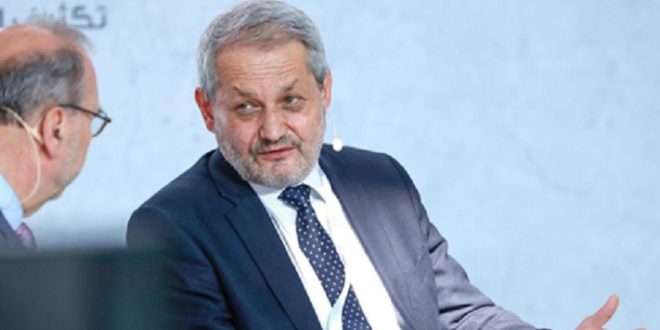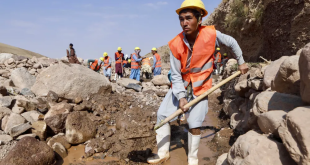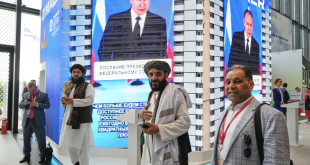AT Monitoring Desk
KABUL: Ferozuddin Feroz, Minister of Public Health speaking at the Reaching the last Mile forum at Louvre Abu Dhabi on Tuesday, said that there is a “missing generation” of women health workers, a consequence of the Taliban’s ban on female education before the regime’s overthrow in late 2001.
The violence and insecurity in the country has meant armed conflict has become the third-highest cause of mortality with malaria, HIV/AIDS and drug addiction also pressing issues.
“In a conflict setting, working in a sector that is needed by everyone, it can be a frustration,” said Dr. Feroz, who was appointed deputy minister in 2002 and is one of the architects of Afghanistan’s health care system.
“I can see people do not have access to primary healthcare, people are dying from preventable diseases. When I can’t do anything, certainly I suffer.
“If you want to do everything, you cannot do it. We need to prioritise the needs. So I address the first things first, then the frustration goes down. According to The National
“But at the same time we are trying to build a system – address the priorities – do something that currently may not give us fruit, but certainly in the long-term will provide us with a lot of dividends.”
Despite the challenges over the past two decades, there has been significant progress in healthcare in Afghanistan.
There have been large drops in infant mortality, for example, and life expectancy has risen from 43 years in 2001 to more than 60.
Rates of chronic malnutrition have fallen by around 20 percentage points over the same period.
Dr. Feroz was named winner of the Best Minister Award at a World Government Summit held in Dubai in February.
He said he was concerned that the current security troubles in the country meant some of the recent gains in healthcare may be reversed.
Non-government combatants, he explained, had banned house-to-house vaccination programmes due to their suspicion of them. “Conflict and insecurity consume a lot of resources,” he said.
“The system we have built, the achievements we have made, we need to sustain it and we need to address humanitarian issues as well.
“Conflict destroys infrastructure. It causes a brain drain of people we have trained, so they are flying out of the country.”
Addressing another challenge, he said: “One of the issues particularly in Afghanistan is a lack of female staff. During the Taliban times, the girls could not go to school, that created a generation gap.
“So we have a shortage of female staff in a country where people are very conservative – women want to be treated by female health workers.
“Women are the most vulnerable group in the country, but they are the backbones of our families as well. If a mother dies, kids are left are behind, nobody will pay attention to their education, health, they will be on the street. They are prone to crime, communicable disease, drugs.”
Much of the focus at Tuesday’s summit was on the eradication of polio, which is tantalisingly within reach. Only Pakistan and Afghanistan continue to report cases, with many delegates committing to a final push to wipe the disease out for good.
The Afghan government helped tackle one significant problem – a resistance to vaccinations because of myths and conspiracy theories – by convening a conference of leading Islamic scholars to issue a fatwa to reassure communities about vaccines.
However, Dr. Feroz said some people were still refusing inoculations because they were demanding treatment for other conditions, which to them were more urgent.
“Nothing is impossible,” he said, referring to the chances of wiping out polio despite a lack of government control over large parts of the country.
“I’m sure it is possible to eradicate it in Afghanistan.
“The issue is access, to parts of the country controlled by anti-government elements. They ban house-to-house campaigns because they see it as a non-humanitarian activity.
“We are working with anti-government elements to convince them to allow us to do house-to-house vaccines, as that is the gold-standard approach.
“If not we will explore other possibilities. We are also trying to provide additional services to the people to meet their basic needs.
“Polio is a global priority. So though this [polio] may not be the national priority [compared with] injuries from armed conflict, it is an issue.
“But at the same time the government has committed to stop the circulation of polio. We need to maintain the balance. I’m trying to deal with polio through the existing system.”
“Our health system is dependent on external financial assistance,” he said. “I’m sure one day that will stop. Taxpayers, certainly, one day will say I prefer our personal enjoyment rather than donating to save the lives of somewhere else in a remote part of the world.
“So we are thankful for it, we have to be accountable for it, but at the same time we have to mobilise national resources. This is the way we can sustain and improve the services for the long run.”
 Afghanistan Times
Afghanistan Times




